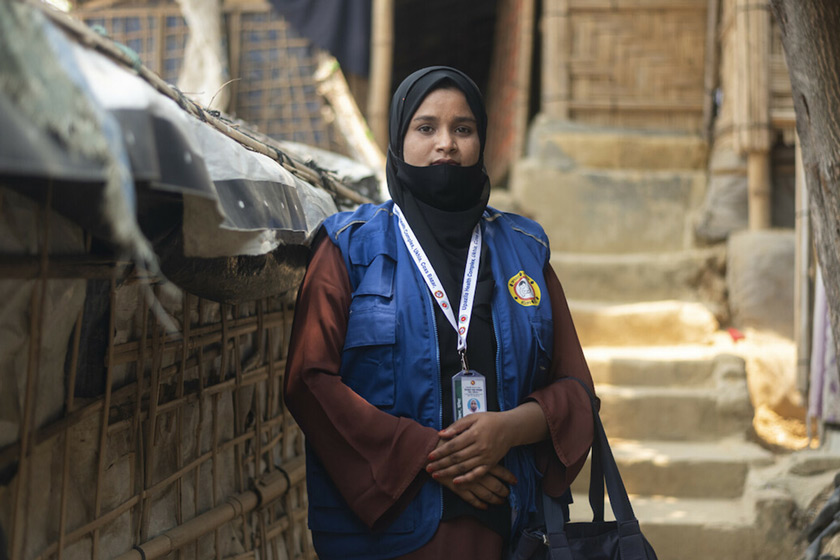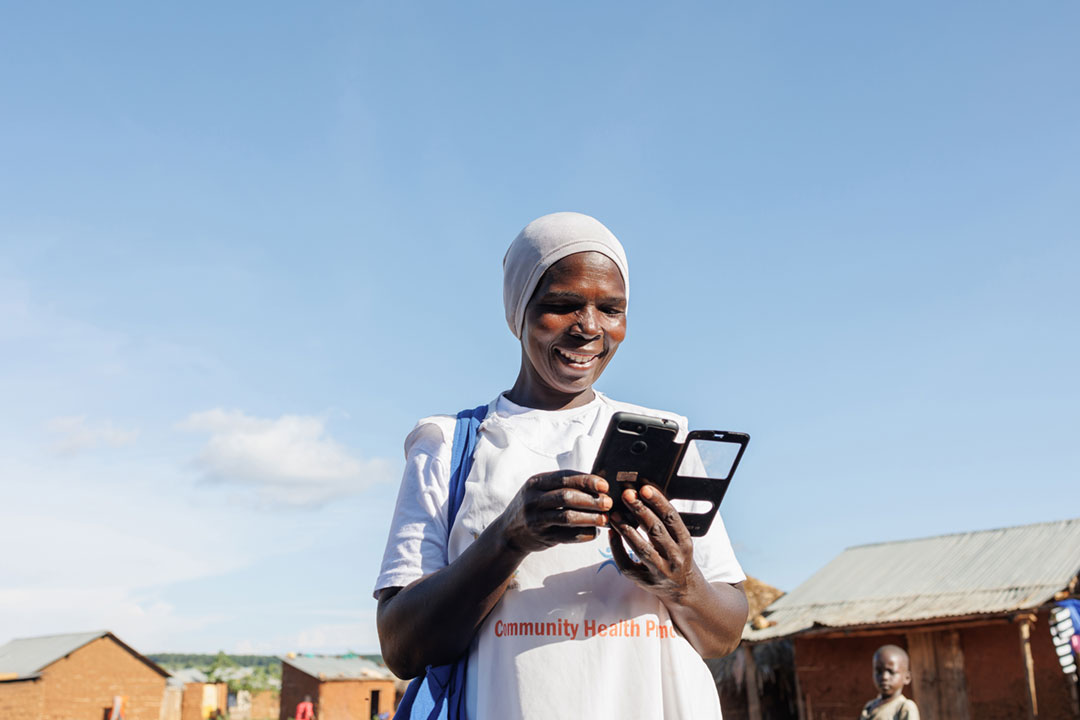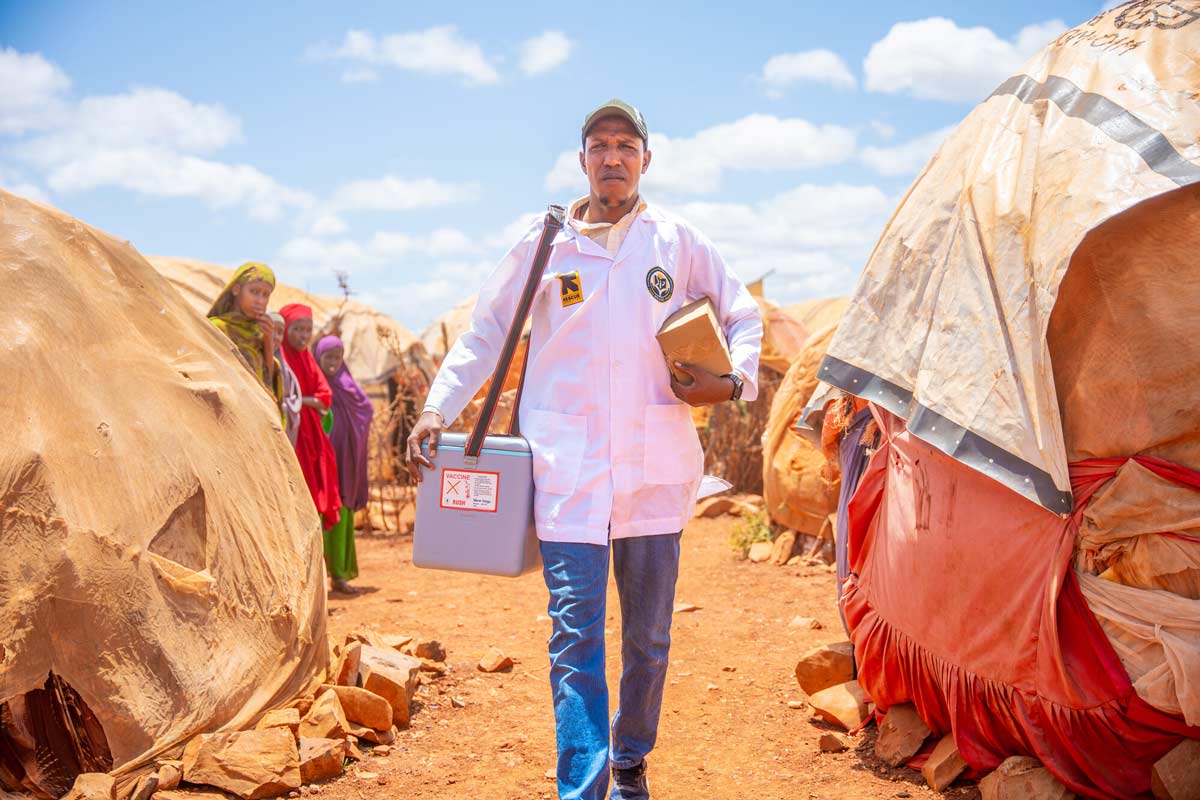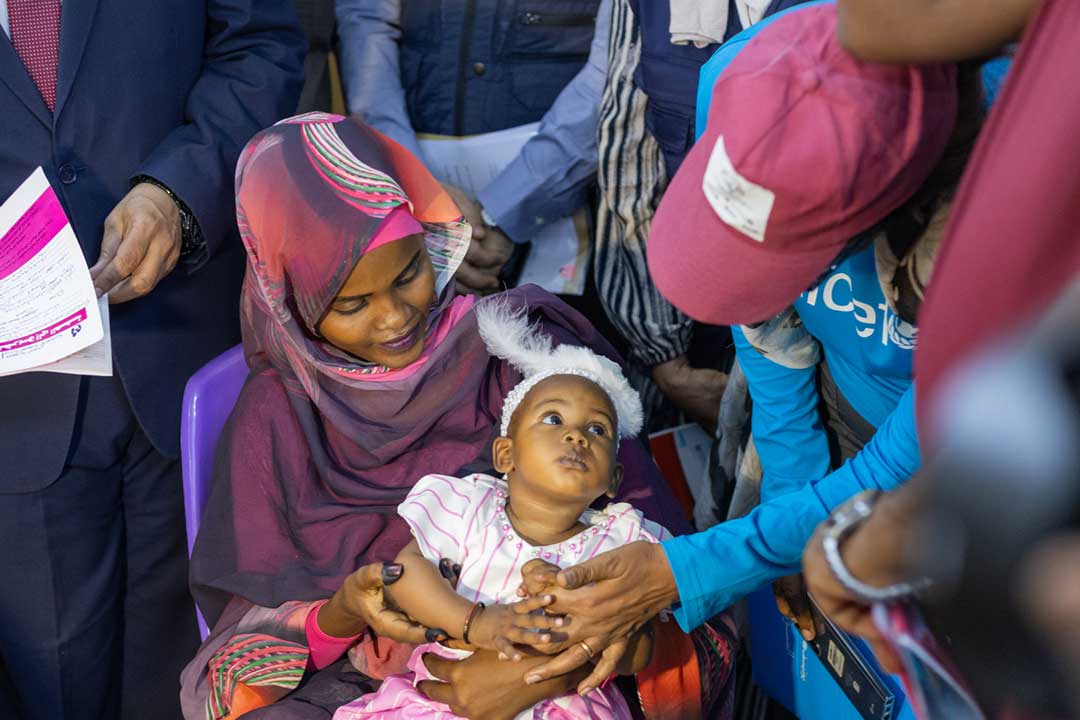Ten eyewitness reports from the frontline of climate change and health
The Geneva Learning Foundation (TGLF) has created a platform enabling health workers to describe the impacts of climate change on their local communities. Here are ten of the most striking reports.
- 30 November 2023
- 9 min read
- by Ian Jones
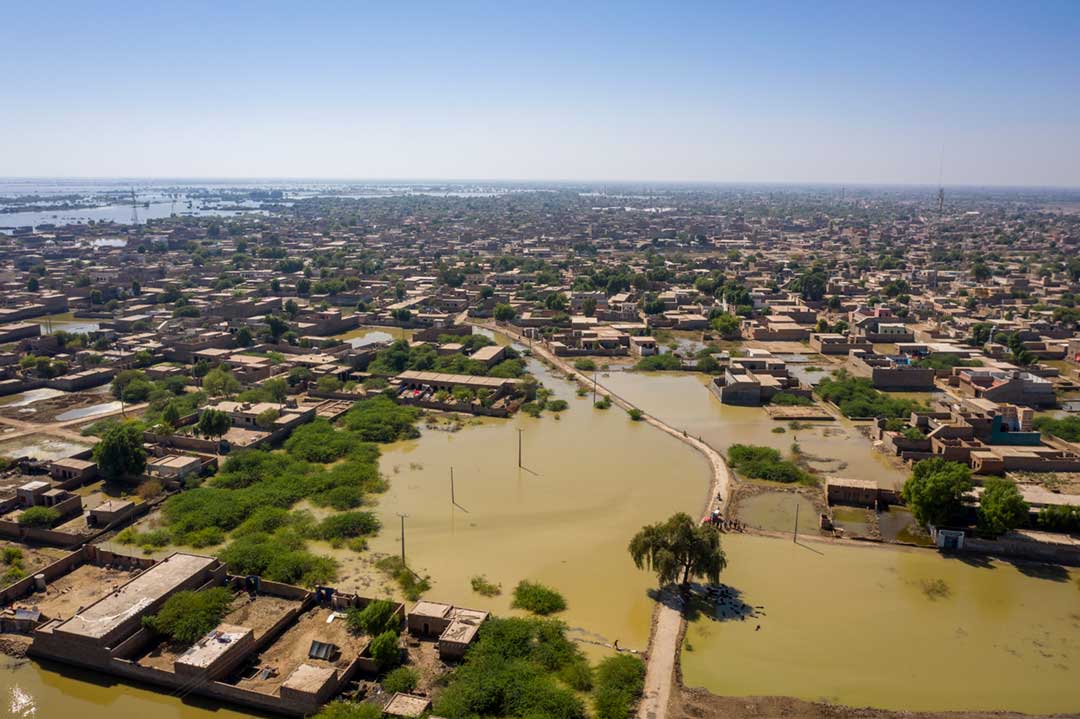
In July 2023, more than 1,200 health workers from 68 countries shared their experiences of changes in climate and health at a unique Geneva Learning Foundation event designed to shed light on the realities of climate impacts on the health of the communities they serve.
A special TGLF report – On the frontline of climate change and health: A health worker eyewitness report – includes a compendium and analysis of these 1,200 health workers' observations and insights. Here are ten of the most striking.
Samuel Chukwuemeka Obasi, who works for the Ministry of Health in Abuja, Nigeria, has noticed big changes to the environment.
"Going back home to the community where I grew up as a child, I was shocked to see that most of the rivers we used to swim and fish in have all dried up, and those that are still there have become very shallow, so that you can easily walk through a river you required a boat to cross in years past."
Iruoma Chinedu Ofortube, who works at the district level in Lagos State, Nigeria, recounts two stories that illustrate the lethal impact of extreme weather.
"A family embarked on a journey without potentially expecting any danger. Sadly, on their way, heavy rainfall started. The family was oblivious to the reality that the rain started ahead of them while they were en route to their destination. Unfortunately, they ran into a massive flood near a river. The force and the current from the flood swept their vehicle down the river, and before help could come for them, they drowned helplessly alongside other victims of the same circumstances.
"There was also a pregnant woman in labour. Unfortunately, they couldn't get a strong boat or canoe that could stand the high current and waves coming from the seaside. In the process of searching for a better means of taking her to the nearest health centre, she got exhausted and died."
Assoumane Mahamadou Issifou, who works for an NGO in Agadez, Niger, points out how food shortages are leading to malnutrition and anaemia, particularly in women and children.
"During the five years that I served in the health service in the Agadez region, I observed significant changes, particularly in the occurrence of heavy rains, which were uncommon in the past. These heavy rains have led to flooding and the displacement of populations, often forcing them to settle wherever they can. Due to their vulnerability during these challenging times, children and women suffer greatly.
"This situation, especially prevalent among newborns and children under five, contributes to malnutrition. The challenges persist because the Agadez region is situated in a desert area with very low rainfall.
"However, even with minimal rain, the region faces immense difficulties. Nutritional foods are insufficient, and environmental degradation compounds the issue. As a result, the population struggles to access daily sustenance. Pregnant women and children lack foods rich in vitamins, leading to undernourishment and subsequent diseases such as malnutrition and anaemia.
"Historically, Agadez was known for its scarcity of rain. With the recent climate change-induced increase in rainfall, few people have come to accept and understand this phenomenon. The region's architecture is outdated, and the city has transformed into a migratory hub where diverse behaviours converge. New diseases emerge, and the indigenous population is grappling with illnesses that were previously unknown to them."
A woman working for the Ministry of Health in the DRC, based in Kinshasa, describes how water level changes are affecting insect proliferation and leading to changing patterns of malaria and other diseases.
"A drought, characterised by a drop in rainfall during recent rainy seasons, has affected the City Province of Kinshasa, particularly in the Makelele District (located in the Bandalungwa commune) where I live.
"This area is bordered by two rivers, Mâkelele 1 and 2. The scarcity of rain in the region during the past rainy seasons has led to a significant reduction in water flow within these two rivers. Consequently, rubbish and debris have accumulated along the riverbanks.
"This situation has resulted in the proliferation of mosquitoes and other unidentified insects. This increase in insect activity has not only led to a rise in malaria cases, but has also given rise to a newly emerging form of dermatosis, the exact nature of which is yet to be determined. It is suspected that these skin lesions develop due to scratching after insect bites. Disturbingly, over 10% of the population within the municipality has been affected by this condition."
Dieudonne Tanasngar, who works for the Ministry of Health in Chad, explains how displacement contributes to poor sanitation practices, leading to increased spread of water-borne diseases.
"In Lake Chad, during the rainy season, the various arms of the lake expand, causing flooding that affects the villages situated along its shores. This flooding often forces the inhabitants to relocate to higher ground.
"However, a significant portion of the population around the lake lacks proper sanitation facilities, leading to open defecation near the water's edge. As the water levels rise, this practice contributes to the spread of diseases, particularly when access to health care facilities becomes challenging.
"Access to health care centres is hindered by the need to cross one or two bodies of water before reaching the nearest facility. This geographical challenge adds to the difficulties faced by the affected population. Consequently, a range of diseases can emerge and afflict the community due to these conditions.
"The combination of poor sanitation practices, flooding, and limited access to health care facilities creates a complex situation that requires concerted efforts to improve living conditions, sanitation infrastructure, and health care access for the people living around Lake Chad."
Coulibaly Seydou, who works for the Ministry of Health in Boussé District, Burkina Faso, has noted how changing dietary habits, alongside declining mental wellbeing, is leading to an increased risk of non-communicable diseases such as high blood pressure and diabetes.
"For several years, the pattern of rainfall has been becoming increasingly irregular. The duration of the rainy season is progressively getting shorter, interspersed with periods of drought. This unpredictability makes it challenging for farmers to adjust their crop choices according to the rainfall pattern, leading to growing concerns. Discussions about the upcoming rainy season can induce anxiety and worry among rural communities.
"When it comes to the impact of climate change on mental health, we can observe a significant disturbance in the well-being of farmers. Even just a couple of days without rainfall can trigger a sense of sadness among them. Instances of minor depression have been noted among household heads who helplessly witness their crops withering due to inadequate moisture.
"In terms of physical health, there has been an uptick in the prevalence of diseases and conditions that can be attributed to changes in dietary habits. Conditions such as hypertension, diabetes and obesity are on the rise. This can be linked to the shift towards consuming industrially processed foods that are low in nutritional value and high in chemical additives."
A man working for the Ministry of Health in Beni in the DRC describes the tragic case of a family driven into poverty and unable to afford health care for the children.
"As a result of the disruption in the seasonal shifts, a modest family reliant solely on agriculture experienced the tragic death of their young son within their community.
"The critical factors involved were as follows: their crop yield plummeted to zero due to their inability to manage the erratic changes in the seasons, and malnutrition, likely compounded by other illnesses, afflicted the family. Faced with financial constraints stemming from the complete failure of their agricultural efforts, they resorted to providing home-based care for their family.
"Tragically, their youngest son paid the ultimate price with his life. In summary, the ever-changing climate dynamics have left us disoriented and uncertain about the future."
Have you read?
Fokzia Elijah, who works for the Ministry of Health in the Province of Batha, Chad, highlights how climate change is having multiple health and social impacts, particularly on pastoralists.
"Batha is the first pastoral province, often experiencing prolonged droughts followed by irregular and sometimes excessive rainfall. These climatic variations lead to challenges in cattle herding, house collapses, and difficulties in sustaining pastoralism, which typically lasts only two to three months.
"Pastoralists often migrate southward with women and children following them. Consequently, malnutrition prevails, affecting over 14% of the population, with women and children being the most vulnerable. Women who remain in the villages demonstrate resilience by engaging in limited market gardening and gathering wild oilseeds to produce sweet syrup for porridge.
"A significant issue is the death of animals between March and June due to inadequate pasture and water. This impacts the most vulnerable, particularly women and children. Batha Province, once renowned for its diverse flora and fauna, has seen the disappearance of most animals except for birds. Hyena attacks have become frequent as they search for food in communities, often targeting domestic pets."
Linda Raji, who works for an NGO in the Kaida and Waru communities in Nigeria, highlights the implication of enviornmental change for young women – one of a range of gender-specific impacts of climate change.
"Prolonged drought dries up the dirty community stream that serves both livestock and residents. This makes it difficult for community members to access water and much harder for menstrual hygiene management for teenage girls leading to an increase in infections in the unbearable heat.
"Due to the difficulty in managing the monthly menstrual cycle due to limited access to water sanitation hygiene and period poverty, many teenage girls prefer to get pregnant to save them the worry of menstruating monthly for nine months."
Dr Chinedu Anthony Iwu, who works at a health facility in Orlu Local Government Area in Nigeria, describes how working with communities can build resilience to climate change impacts.
"The changing climate has brought about an increase in the prevalence of vector-borne diseases. Mosquitoes are now breeding and transmitting diseases like malaria more intensely. The community lacked proper health care facilities and resources to effectively combat these diseases, leading to a rise in illness and mortality rates. Mothers' means of livelihood were usually disrupted due to the time and effort spent in caring for their sick children with a significant impact on household welfare.
"Recognising the urgent need to address these climate-related health challenges, we engaged in community-led initiatives that included comprehensive health awareness campaigns to provide education on sanitation and hygiene practices, and education of residents about preventive measures against vector-borne diseases. By engaging our community health extension workers, we were able to organise regular health check-ups in the communities, focusing on early detection and treatment of illnesses.
"Over time, these collective efforts began to yield positive results. The mothers in the communities witnessed improvements in income as they progressively began to spend less time pursuing children's health care challenges due to the adoption of preventive measures, thereby becoming more resilient to the changing climate.
This experience highlights the challenges faced by rural communities in Nigeria due to climate change. It demonstrates the importance of community engagement, sustainable practices, and support from relevant stakeholders in addressing the climate-health nexus and building resilience in the face of a changing climate."
